This is Flag Day. In honor of that, I reprint my story about Tempest, the cat who helped make history.
Star Spangled Cat
By Blanche Day Manos
“What?” I screeched. “Go to sea? Are you crazy?” Every one of my gray and white hairs stood straight up.
Reggie laughed. “You look like a bottle brush, old chap,” he said. “You’ll love the ocean!”
Nay! I decidedly would not love the ocean. I hate water. I also detest heights and loud noises. And mice.
I was but a small kitten when Reggie found me blown against his doorway on the night of the most horrific storm in England’s history. With my warm bed behind his stove and saucers of cream he set out for me, I was content. No more being blown around by wind and rain! I wanted to stay home and write poetry.
Did Reggie pay any attention to my wishes? He did not! One day he stuffed me into his knapsack, locked the door behind us, and headed for the harbor.
“England needs us, Tempest old chap,” he said. “Those snooty colonists must learn who’s boss so I’ve signed on to the HMS Tonnant. Every ship needs a cat to keep the rats down, you know. You can be that cat.”
Rats? This was the last straw! I popped my head out of his sack but he laughed and pushed me back in.
“Steady, old chap,” he said. “This war has lasted too long. It’s already 1814 and we’re on our way to America!”
And so it was that one day Reggie and I landed on the deck of the HMS Tonnant of the Royal Navy.
Reggie was an unusual young man. He talked to me; I talked to him and we understood each other.
“Just look at this ship, Temp-boy,” he said. “It has eighty guns! It’s old Cochrane’s flag ship and you and I are on it! We’ll whip those Yankees in no time!”
I have to add here that Reggie did not call Vice-Admiral Sir Alexander Cochrane “Old Cochrane” to his face. In fact, he didn’t call him anything. His ranking was so far below the commander’s that Sir Cochrane hardly noticed Reggie.
Just as I feared, that creaky ship was over-run with nasty vermin! I worried myself silly hiding from the sneakiest, dirtiest most scaly-tailed varmints with the sharpest front teeth which ever infested a vessel. Pretty soon, the sailors noticed that the rats were taking over.
“Say, Reg,” one complained, “what’s wrong with your pet there? He ain’t doin’ his job.”
“It’s serious,” another seaman said. “These rats are in the flour, in the sugar and the other day I found one swimming in a barrel of molasses.”
The men cast dagger glances at me and I crept behind one of the ship’s eighty guns. Reduced to writing poetry in hiding, I was afraid of the sailors, the rats, and the rolling, tossing, very wet ocean.
“The sea is deep. I cannot sleep. Six rats I see. They may eat me,” I wrote in the little notebook I keep.
The Tonnant offered many hiding places. I crouched, unseen on most of the voyage, coming out only when the day was sunny and fair.
It was not sunny come September. We anchored off the coast of Baltimore, Maryland amid a thunderstorm. Rain fell for days and was still falling when I heard shouting.
“Ahoy there!” someone called.
“Ship coming alongside!” another yelled.
Hurrying over to Reggie, I pawed at his trousers.
“What’s happening?” I asked, craning my neck to get a look at a small single masted ship which was dropping anchor.
Reggie shook his head. “I heard some of the men mention a Mr. Key. He has a mighty fine looking sloop.”
“Hey there, Kitty, get out of the way!” a big, burly sailor growled.
I climbed up Reggie’s trousers and perched on his shoulder where I felt safe. Two newcomers disembarked from their ship and climbed the ladder to the deck of the Tonnant.
“Heave to, there, ye sailor!” yelled one of the officers to Reggie. “Kindly get that worthless cat off your shoulder and escort these two gentlemen to the captain’s quarters!”
Ugly rudeness I ignore. In a graceful arc, I leapt to the floor. Finding a handy tarp, I crouched under it and peered out at the goings on. These Americans disappointed me. From the way the sailors talked about them I expected to see them wearing horns and evil leers on their faces. But no! These two just looked wet and bedraggled and more than a little nervous.
That night as I snuggled in Reggie’s bunk, he told me our visitors had come to try to free another American we held on board as a captive, a Dr. William Beanes.
“I don’t think the captain will release him,” Reggie said just before he yawned and closed his eyes.
Being sort of a prisoner myself, I felt sorry for Dr. Beanes. And, in spite of myself, I rather admired the courage of these men who would come to the enemy to plead for the return of one of their own.
During the next few days, many more British ships joined the Tonnant. Even I, not of the human race, could tell something was brewing. All the ships had big guns and all the guns pointed at the American town called Baltimore and in particular, Ft. McHenry.
“What is yon pennant waving above the fort?” I asked Reggie one day as he scurried back and forth carrying munitions, muskets, food, whatever was needed by the men on board the Tonnant.
“That’s the American flag,” Reggie muttered, panting for breath as he jogged across the deck. “Mighty big it is, with fifteen of them huge stars but just wait, we’ll see it come down from there, Tempest old fella.”
I hated that in a way. It looked pretty and bright and kind of cocky too, waving there in the face of all the British warships, sort of like a mouse thumbing his nose at a cat. Now, why did I have to think of that?
Writing in my diary, I composed a poem in honor of the brave banner. “Oh, flag of red, white, and blue, if I had a hat, I’d tip it to you.”
Hearing a commotion, I looked up to see the three Americans, Francis Scott Key, Dr. William Beanes, and Col. John Skinner being bustled toward the side of the Tonnant.
My whiskers twitched. “What are they doing?” I whispered. “Are they going to drop the prisoners overboard?”
Reggie shook his head. “Nay. Old Cochrane, I mean Admiral Cochrane is going to put them back on their sloop. But he’s sending guards with them. They can’t leave yet.”
“Why not?” I asked.
“Something big is coming up,” Reg whispered, his eyes as round as cannonballs.
I couldn’t miss this. Springing to the railing of the deck, I watched as the three Americans and the British guards were lowered into their sloop. Craning my neck to catch a better view, my feet slipped just as the ship lurched. In the blink of an eye, I found myself with a mouthful of salt water as the sea closed over my head.
Like a cork, I bobbed to the surface, striking out with my paws, my eyes, ears, nose, feeling as if I had swallowed half of the Atlantic Ocean.
In the distance, I heard Reggie shouting, “Man overboard!”
Feeling something under me, I scrunched up my eyes and waited for the jaws of a shark or some awful sea creature to swallow me whole; instead, something lifted me gently from the ocean and deposited me on a solid wood floor.
“He’s alive,” someone said. “Quick thinking, Key, to scoop him up with that fish net.”
I opened one eye and then the other.
“Well, hello,” my rescuer said, lifting me from the net and looking into my face.
I coughed and sneezed. At last I gasped, “Hello, yourself.”
“A talking cat!” he sputtered.
“What? What did you say?” his friends asked, turning toward him.
He grinned and waved at Reggie who leaned over the rail of the Tonnant looking horrified.
“I’ll take good care of your cat!” Mr. Key yelled up at Reg.
“His name is Tempest!” Reggie shouted.
So, that’s how I came to become the close friend and confidant of one of the most profound shapers of American lore. And that’s how I became the unwilling witness to the shelling of Ft. McHenry.
The noise of the guns on those fifty British ships which were aimed toward Ft. McHenry nearly deafened me. I tried to hide from that horrible roar. The air vibrated with the shelling and all through the night, flashes of the bombs bursting in the air lit the sky like a giant thunderstorm.
The safest place I could find was at the bottom of the pocket of Mr. Key’s greatcoat. With paws over my head, I cowered as he paced the deck back and forth, back and forth.
“Oh, I can’t see the flag at the fort,” he moaned. “It’s so dark and the deck of this sloop is so low. The waves hide it from me. Oh, is our flag still there? Is it still waving over the fort? Have the British taken it?”
A funny thing had happened at the moment Mr. Key rescued me from drowning in the sea. My patriotism switched sides! Just like that, I began hoping those upstart Americans would hold out. But how could they? Everyone knew England’s great power.
For twenty-five hours the din of guns continued. My head ached with the noise. My eardrums were near to bursting.
In the darkness of early morning, suddenly the awful bombardment stopped. Mr. Key’s pacing stopped too. Cautiously, I stood on my hind legs and peeked from his pocket.
The other two Americans gathered around Mr. Key.
“What does it mean?” Col. Skinner whispered. “Why have they stopped the shelling?”
Dr. Beanes swallowed. “It means one of two things. Either we have surrendered or the British have given up.”
Mr. Key smacked his open palm with his fist. “No, no. We cannot have surrendered,” he thundered. “But it’s so dark, I can’t see the fort and the sloop sits low in the water.”
“Well,” I muttered, “You could always ask to be taken back aboard the Tonnant.”
Mr. Key’s hand dropped to his pocket and he rubbed my head. “I don’t believe we would want to do that. We’ll just have to wait ‘til sunrise and hope we can catch a glimpse of our flag, somehow.”
Finally, the morning darkness gave way to the rising sun. The three Americans ran to the prow of the boat. Leaning as far as they could out of the ship, they peered toward Ft. McHenry.
“If they had kept us on board the Tonnant, we would have been higher,” Col. Skinner muttered.
“If we could just climb a mast, we would be able to see the flagpole,” Mr. Key said excitedly. “However, I don’t think it would be safe.”
At that fateful time, he glanced down at me. “Temp old fellow,” he said. “You could take a peek for us. Shinny up that mast, will you?”
Dr. Beanes felt Mr. Key’s head. “Dear fellow,” he said, “do you have a fever?”
Col. Skinner’s mouth dropped open as he stared at Mr. Key who had conversed with a lowly cat.
Trying to scrunch into a small ball in the corner of his pocket, I mewed pitifully, “Don’t ask me to climb, Mr. Key. I’m fearful of heights.”
Without a by-your-leave, he pulled me from his pocket and set me on the near mast. “Nonsense,” he said. “Shinny right up that pole.”
What could I do? He had saved my life. Quivering with fear, I clasped that mast with all four paws and crept slowly upward. Almost afraid to breathe, I squinted toward Ft. McHenry.
“Oh, say!” Mr. Key called from somewhere below me. “Can you see it? Is our flag still there?”
Something waved in the distance. Sunbeams shone on a movement. That lovely banner with the huge stars and the wide stripes rippled from atop the flag pole. The flag was still there.
“It is!” I cried. “It’s there. It’s that Star Spangled Banner and it’s waving. The British have not taken the fort.”
I slid down that pole, my heart thumping wildly. When Mr. Key, tears streaming down his face, repeated the good news to his friends, they forgot about the impossibility of a talking cat. They grabbed each other, danced around the deck, and yelled almost as loud as those guns had been.
Mr. Key, who was a poet as well as a lawyer, and I might add, a loyal friend to his companions, said, “I’ve got to write this. I’ve got to record this for posterity. But what can I write on?”
“When I was in your pocket,” I told him, “I felt an envelope in there with me. Use it.”
And he did. When Mr. Key searched for a word, I supplied it for him. “Why not start it with your question when I was on the mast?” I asked.
“Good, good! You’re a fine lad, Tempest,” he mumbled, busily scribbling on the envelope. “Oh, say, can you see by the dawn’s early light, what so proudly we…um…we…”
“Hailed,” I suggested.
“That’s it!” he crowed and continued writing.
Now, I really doubt that history will realize how important a role I played in writing that wonderful song that went on to be the national anthem of a young, valiant country. After all, not many people can communicate with a cat. In fact, only two that I know of, Reggie and Francis Scott Key. But, as it turned out, that was quite enough!
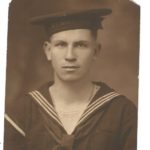


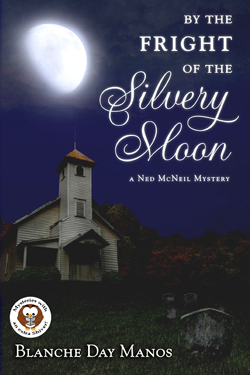
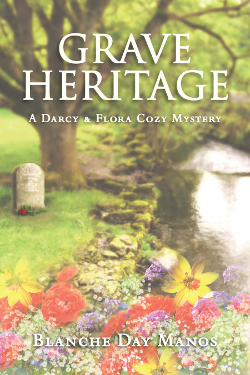
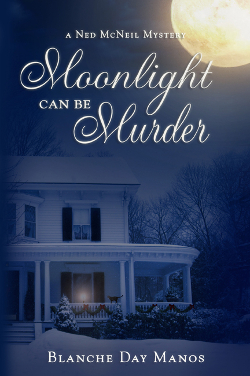

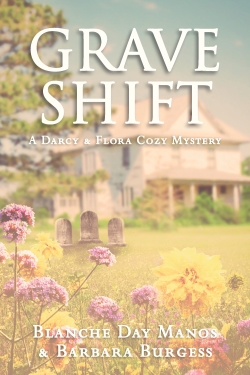

Speak Your Mind